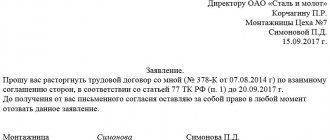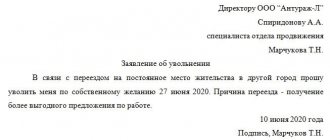Funds supplementing savings for housing
Upon dismissal on “preferential” grounds (general medical condition, health status, family circumstances or age limit for calendar service of at least 10 years; dismissal due to recognition as unfit for military service - without limiting the minimum length of service) NIS participant (or members of his family) acquires the right to receive funds that supplement savings for housing, the payment of which is carried out at the expense of the limits of funds allocated for housing by the federal executive body where the serviceman served.
For military personnel discharged from military service (for family members of deceased military personnel) after the entry into force of Law No. 118-FZ of May 1, 2016 (after May 12, 2021), the presence of other housing is no longer a basis for refusal to pay additional funds.
- tenants of residential premises under social tenancy agreements;
- family members of the tenant of the residential premises under a social tenancy agreement;
- owners of residential premises or family members of the owner of residential premises (except for premises purchased under the Military Mortgage program).
The calculation and payment of additional funds is made by the federal executive authority at the last place of military service of the NIS participant, once for the entire period of military service. The amount of additional funds is determined based on the amount of the annual savings contribution per NIS participant, established by the federal law on the federal budget for the corresponding year, and the number of full years, months and days that the NIS participant has not served since the date of occurrence of the basis for its exclusion from the register (date exclusion from the lists of personnel of a military unit) until the date when the total duration of his military service in calendar terms could be 20 years.
Additional funds can be used for their intended purpose, that is, to purchase residential premises or to pay off mortgage loan obligations existing on the date of receipt of funds, as well as for other purposes.
Military mortgage: dismissal for health reasons
Graduated from St. Petersburg State Economic University in 2001 with a degree in Accounting and Analysis. Worked from 2009 to 2021 at the Bank of St. Petersburg.
A military mortgage is an excellent opportunity to improve living conditions for all military personnel. But you have to pay for this with even greater attachment to the army, because after connecting to the NIS system, you won’t be able to just leave.
So, for example, with less than ten years of experience, almost any dismissal automatically leads to the loss of all savings . There is only one exception - death or missingness.
Therefore, before applying for a military mortgage, it makes sense to study in detail the consequences of dismissal and ways to preserve savings. This is why we created this article - it covers the subject of discussion from all sides, with nuances and legal details.
Features of a military mortgage
The government and military departments are actively encouraging healthy young men to enlist. A solution to the housing issue is often cited as one of the arguments: special mortgage programs, preferential interest rates and even a savings system have been developed, where money earned by the military during their service is accumulated and increased.
All of the above opportunities are actively used by all contract military personnel.
Expert opinion
Antonov Viktor Sergeevich
Practicing lawyer with 8 years of experience. Specialization: military law. Recognized legal expert.
But these same circumstances prevent many military personnel from resigning at will. Indeed, in this case, it is at least unclear what will happen to the property acquired for the service. What if it will be taken away or the terms of the loan will change dramatically?
First, a short educational program on this topic. A military mortgage refers to a targeted loan in which the debt for purchased real estate is repaid not by the serviceman himself, but by the Ministry of Defense.
It happens like this: every year an amount is subsidized into a special account in accordance with the military mortgage program (MMP), which can and should then be spent as initial and subsequent mortgage payments. The amount is sent by a special organization “Rosvoenipoteka”.
The savings-mortgage system (NIS) has a number of features that a serviceman needs to take into account even before he leaves the Russian military forces. These features, for example, contain the answer to the question of how to withdraw money upon dismissal. The list of these features includes:
- Connection to the NIS program can only be done if the contract with the RF Armed Forces was signed no earlier than 2005;
- At least three years of participation in the program and parallel service must pass before the military can use the money to purchase real estate;
- Having a bad credit history is not at all an obstacle to getting a loan. Almost all banks in Russia understand perfectly well that the serviceman himself may not be a completely responsible person, but Rosvoenipoteka, which stands behind him, is a completely different story;
- It should be taken into account that most loan agreements for military mortgages include the right to change the terms of the loan upon dismissal of the borrower . This means that the interest rate may increase, then returning the previous rate will either be impossible or difficult to achieve through legal disputes;
- 10 years of service is a kind of milestone for a military man. If the milestone is passed, even after the death of the borrower as a result of the performance of professional duties, the state will continue to pay the mortgage until the loan is fully repaid. If the required length of service was not obtained, upon the death of a serviceman, the burden of securing the loan falls on the co-borrowers and the family of the deceased.
This is only a small, but the main part of the features of this type of mortgage lending. Now let's look at what happens to the mortgage after certain events - dismissal, for example, or illness.
Negative option for exiting NIS
All money received by the military from the state budget is returned to the state with interest.
The debt is accrued from the moment the part that went into reserve is removed from the lists. Its size consists of the amount of the targeted housing loan and Rosvoenipoteka contributions.
Here's an example: Alexander bought a studio apartment in St. Petersburg worth 2.8 million rubles. The initial payment in the amount of one million was paid from the CZHZ fund. The rest of the debt was taken out on credit at 12% per annum. For three years, Rosvoenipoteka transferred funds to repay it: 21,678 x 36 = 708,408 rubles.
After voluntary dismissal, the debt due to leaving NIS is 1,708,408 rubles. Alexander now pays the mortgage in the amount of the remaining debt (1.7 million rubles) himself. Of the entire amount allocated as part of state support, pennies were spent on repaying the body of the loan - the lion's share was transferred to pay interest to the bank.
Look at the same topic: Is it possible to take out a mortgage secured by existing housing in [y] year? Terms and banks
Alexander’s total debt at the time of his retirement was RUB 3,408,408. The debt to the bank is repaid under the terms of the same mortgage agreement: RUB 21,678/month. The debt of Rosvoenipoteka will be signed for 10 years at the Central Bank refinancing rate (9%) - 19,500 rubles per month. Every month, Alexander will have to pay a total of 40 thousand rubles. per month for 10 years. He is thinking about leaving the apartment to the bank.
What happens to the mortgage after service ends?
It must be taken into account that preserving all savings is possible only with preferential dismissal. It occurs under the following circumstances:
- 20 or more years of service;
- If the continuous service has reached or exceeded 10 years, preferential dismissal is possible upon reaching the maximum age for the RF Armed Forces, upon dismissal as a result of organizational and staffing measures (OSM), as well as for family reasons;
- For health reasons, but only if the experience is more than 10 years. This refers to illnesses that make service impossible;
- Death of a military man or receiving the status of missing in action.
If we talk about the future fate of savings schematically, then we can divide the preservation of funds according to the main criterion - whether the money was spent before dismissal or whether the contract worker had not yet managed to invest it in real estate. It is also very important whether the serviceman retired on preferential terms or not. Let's present this data in the form of a table:
| Length of service | Was the money used? | The right to dispose of property and the future fate of the mortgage |
| Less than 10 years | The contractor managed to invest money in real estate before being fired | All monies already paid by the state for the mortgage will have to be reimbursed within ten years from the date of dismissal. The remaining debt to the bank must be repaid yourself |
| From 10 to 20 years | Everything is preserved - both savings and a preferential interest rate. But the remaining debt to the bank will have to be repaid without government help. The right to additional payments appears to compensate for the missing years of service up to 20 years | |
| 20 years or more | There is no need to return anything. Savings can only be used for the intended purpose, i.e. to pay off debt to the bank. If they are not enough, the balance remains with the borrower. The mortgage ceases to be military, so the interest rate may change. | |
| Less than 10 years | The contract worker did not have time to use up his savings | All savings of the NIS participant are confiscated |
| From 10 to 20 years | All money received under the program can be spent on purchasing housing or for other purposes, but only with preferential dismissal. In this case, he will also have the right to additional payments to compensate for the missing years of service up to 20 years. If the dismissal did not occur on preferential grounds, all savings are burned. | |
| 20 years or more | You can use it as you wish - either for real estate, or simply withdraw it by submitting a report and then spend it on any purpose |
Based on the information received, we can conclude: loyal conditions for a military mortgage remain in case of dismissal for health reasons, but if the dismissal occurred due to a loss of trust or with any violation of contract obligations, without 10 years of service you can not even think about receiving the money from NIS. And 10 years of service only saves you if the contract soldier has managed to invest money in housing.
The procedure for paying a mortgage to military personnel after dismissal
What can an officer do to receive payments if he has the right to a subsidy for the purchase of living space? In such a case, the subsidy applicant has the right to receive a certain amount of money from Rosvoenipoteka. To do this, the subsidy applicant must go through the appropriate stages of applying for a mortgage:
- Having received an order for his dismissal, the military man must submit a report to the military unit about the issuance of a certain amount from his personal account.
- The military unit will transmit the required data to the authorities, and then this information goes to Rosvoenipoteka.
- The data will be processed, and within one month the warrant officer or officer can receive a transfer from his savings account.
- In addition, if a military man is included in the list of persons entitled to benefits for payments upon dismissal, then he will receive the right not only to receive a certain amount from an individual account, but also to additional subsidies for the purchase of the living space he needs.
- Only officers who do not use housing on social rent or are already owners of housing can apply for government subsidies after dismissal.
As a result, it turns out that officers whose service in the Armed Forces is at least 20 years old, and those officers and warrant officers who retired for preferential reasons after 10 years of service can use the military lending service upon dismissal. In addition, if the length of service is 20 full years, then the military man has the right to use the NIS credit as he sees fit. The same rights are available to career officers with at least 10 years of service, who were also dismissed for a reason falling under the list of benefits. In case of such dismissal, if the serviceman’s service is 10 years, he also has the right to the capital accumulated in his personal account.
The recipient of the loan may not give this money to the state, but he is obliged to pay the rest of the mortgage himself, while retaining the right to compensation. Of course, if he does not use an apartment received on a social loan. In such a situation, he will retain a preferential interest rate.
This is important to know: Social support measures for combat veterans: provision of housing
How the program works
To receive the coveted square meters, the military needs to join the NIS (savings and mortgage system). The state register will certainly include persons from the military who graduated from military institutions and who signed their first contract after January 1, 2005.
Persons from the officer corps whose period of military training expired before January 2005 join the list voluntarily, on the basis of a written report.
The essence of the program is that each NIS member opens an individual savings account and a specific amount is transferred to it. It is the same for all military personnel, regardless of their rank and length of service. Every year the amount of revenue increases due to indexation.
Persons registered in the program can:
- buy real estate with funds in their accounts and from money accumulated in individual personal accounts;
- You can use the funds in your savings account to repay a targeted loan from a credit institution;
- three years after joining the program, you can buy living space using borrowed funds from the bank and from Rosvoenipoteka;
- Each participant has the right to receive annual information about the balances of money in his personal account from the authorities at the place of military service.
What happens to savings in the event of dismissal?
Military personnel who used money from the government program fear that if their contract is terminated, they will lose their savings. What's really going on? The answer is that it may depend on the reasons for leaving military service.
The grounds for dismissal are divided into preferential and other. These may be the following privileges:
- the serviceman has served the maximum period in the army;
- reduction in organizational staffing activities;
- complete or incomplete unsuitability for further service and performance of immediate duties;
- for family reasons, when there is a need to care for a seriously ill relative.
If the reason for leaving service was one of the above reasons, and the person did not have time to take advantage of the program to purchase real estate, then he retains the right to receive savings and additional payments. This requires that he serve in the Armed Forces for more than 10 years.
What is due at the end of the service life?
If a serviceman has more than 20 years of service (including in preferential terms), then he can apply for NIS funds in full. It doesn’t matter for what reason he quits. He will receive the money even if:
- wrote a statement of his own free will;
- at the end of the contract;
- the contract was terminated due to non-compliance with the terms of the contract specified in the document.
Important! If the dismissal took place after 10 years of service, and the reasons were valid, then the employee retains savings.
Payment upon preferential dismissal
After termination of official duties, events can develop in two ways:
- if the serviceman’s family did not have time to use the funds, then after termination of the contract the money in the savings account is retained. The officer must write a report as soon as he decides to use them for their intended purpose;
- if the military man managed to initiate a mortgage lending program and was dismissed on preferential terms, then the accumulated funds are transferred to a bank account. If necessary, the borrower will have to pay off the balance of the debt on his own.
When dismissed on preferential terms, a serviceman is entitled to an additional payment. The final amount is added up by calculation: the approximate amount of compensation that the officer could receive if he served for a full 20 years is taken. If an officer dies or is declared missing, his close relatives can receive the payment.
If the length of service is 15 years, and the officer resigns for health reasons, then he will have to pay the debt to the bank from his own funds.
Upon early dismissal from the army, a military man can apply for funds from the state if his service period is more than 10 years.
Conditions for leaving the army
The reasons why a soldier or officer may be dismissed from the army are stated in Art. 51 Federal Law No. 56 “On military duty and military service.” Reasons undesirable for a mortgage program participant:
- Deprivation of rank. If there is no trust in the borrower, information about family income is not provided, the employee is engaged in business, has accounts and other valuable savings outside the Russian Federation.
- Deprivation of liberty. When a crime is considered committed intentionally (a suspended sentence is also taken into account).
- Expulsion from the university. If the borrower is expelled from a military educational institution.
- Court decision on the impossibility of holding a leadership position in the army. When the sentence becomes final, the soldier is deprived of his privileges for the specified period.
- Renunciation of Russian citizenship. If the bank client is not a citizen of the Russian Federation, the agreement becomes invalid. A similar restriction applies when obtaining foreign citizenship.
- Failure to fulfill contractual agreements.
- Refusal of access to state secrets or deprivation of such access.
- A court verdict of suspended imprisonment for a crime committed by a military man through negligence.
- Test of “violation of prohibitions, failure to comply with restrictions, failure to fulfill duties.” When the participant did not pass it.
- Chemical-toxicological examination. If the program participant has not passed a test for the presence of drugs in the body.
- An administrative offense related to the use of drugs and psychotropic drugs without medical supervision.
Look at the same topic: What is a mortgage on an apartment with a VTB 24 mortgage?
A favorable result for the borrower of exiting the NIS is also possible:
- Dismissal after 20 years of service (preferential accrual);
- The decision of the Military Commission for Military Commissions is when a serviceman is declared unfit (in whole or in part, only in wartime) for health reasons for military service;
- Dismissal with 10 years of service;
- The maximum possible age for military service (50 years, military rank - lieutenant colonel);
- Organizational and staffing measures (OSM).
The neutral option is dismissal at the end of the contract (or for other reasons other than those listed).
A clear understanding of the reasons for leaving the state program will help to assess all the risks when applying for a housing loan.
In what cases are savings not paid?
If the serviceman’s dismissal occurred before the expiration of 20 years, and the reasons do not relate to the preferential list, then the serviceman loses the right to use the savings. Here events can develop according to the following schemes:
- if an officer does not take advantage of a military mortgage, his individual account is simply closed, and the savings on it are returned to the state budget;
- if a military man purchased real estate using the savings system, then he will have to return the amount paid by Rosvoenipoteka and repay the mortgage debt to the bank using his personal funds.
PROFESSIONALS WILL HELP YOU WEIGH ALL THE PROS AND CONS
The conditions of a military mortgage in the event of resignation do not change; simply, depending on its reasons and length of service, either the former NIS participant himself or the state will pay the money to the bank. The same factors determine whether you will have to return the CZH amount.
This is important to know: Who is eligible for a military mortgage
There are many nuances, if you still have questions, contact our consultants - we will help you sort out possible risks, choose a mortgage with favorable conditions and decide on housing in St. Petersburg and the Leningrad region.
Features of receiving payments after 45 years
The specified age threshold is of great importance in some situations. Let's sort them out.
- If the period of service in the army at the time of reaching the age limit is less than 10 years, then the military man does not have the right to use the accumulated funds.
- If the mortgage from the bank is designed for up to 45 years, and the military man retires at the age of 40 after expiration of 20 calendar years of service, then in this case the NIS money does not need to be returned; the balance of the loan from the bank will have to be repaid from one’s own funds according to the payment schedule.
- If you have not taken out a military mortgage before the age of 45, then after this age real estate can only be purchased using accumulated funds, since banks do not lend after this age.
Expert opinion
Antonov Viktor Sergeevich
Practicing lawyer with 8 years of experience. Specialization: military law. Recognized legal expert.
Each case is unique and requires careful consideration of the issue, so it is better to use the services of a competent lawyer with experience in such cases.
When does a serviceman have to return money to the state?
- has more than 20 years of military service (the article may not be respectful at all, up to the NUC);
- has more than 10 years of military service and is dismissed on preferential terms (there are 4 of them);
- is recognized by the medical commission as unfit for further service (completely unfit for military service) regardless of length of service.
- independently expressed a desire to resign with less than 20 years of service, incl. in preferential terms;
- violated the terms of the contract with less than 20 years of service, incl. in preferential terms;
- dismissed on preferential terms, but their military service has not reached 10 years.
Expert opinion
Antonov Viktor Sergeevich
Practicing lawyer with 8 years of experience. Specialization: military law. Recognized legal expert.
“Military Relocation” is a navigator for military mortgages throughout Russia. The latest trends in the field of savings and mortgage system, exclusive solutions and maximum benefits for military personnel when purchasing finished and under construction housing.
This is important to know: How to get a company apartment for employees
Apartments, townhouses, houses on land. Review of all possible housing options according to the NIS.
Legal support and judicial protection of military personnel. “Military relocation” is a military mortgage in a new way!
Arbitrage practice
All payments under the Military Mortgage program are under strict state control. The military is increasingly less likely to go to court to resolve their issue. But in some cases, a controversial situation has to be resolved with the help of the judiciary.
The most common problems that arise are:
- in case of divorce when dividing real estate purchased with NIS funds;
- in situations related to dismissal and exclusion from the register;
- termination of service earlier than the established period and refusal to use savings.
In any case, you will have to collect a lot of papers and evidence confirming the rightness of the serviceman. In order not to be left without housing, in some cases it is recommended to use the services of human rights defenders.
A little theory
So, there are various cases of dismissal from military service, and each of them has its own mechanism for stopping the military mortgage. All the main reasons for dismissal and their consequences for a military mortgage are described below; for now, let’s focus on some important definitions that you need to know and understand.
TsZHZ (targeted housing loan) is that part of the amount that accumulates in the personal savings account of a military member participating in the NIS, and which the state, represented by FGKU Rosvoenipoteka, transfers to the bank (or the seller, if the purchase occurs without borrowed funds). Depending on the reason for dismissal, the employment center may become gratuitous (i.e.
it does not need to be returned) or must be completely returned to the state.
Please note that, in the case of a full return, the serviceman is given 10 calendar years with an approved payment schedule to return the TsZZ, and interest will be charged according to the Central Bank refinancing rate.
Monthly payments are made by the state to the bank account where the mortgage was taken out. Calculated as 1/12 of annual savings contributions. Depending on the reason for dismissal, they will have to be returned in full, like the CZZ, with interest at the refinancing rate, or they will become free of charge.
A bank loan is an amount that a bank has lent to a military member. The maximum amount is 2.4 million.
rubles (in practice less). This loan will have to be repaid in any case, the only question is who will do it - either the state at the expense of annual savings contributions, or the military personnel at the expense of their own funds, as well as funds supplementing savings.
Funds that supplement savings . In accordance with the Order of the Minister of Defense of the Russian Federation dated February 28, 2013 No. 166, paragraph 61, in accordance with which military personnel have the right to receive funds that supplement personal savings, having served from 10 to 20 years and dismissed under preferential clauses, such as:
- Reaching the service life limit;
- In connection with the OSH (operational and routine activities);
- Recognition as limitedly fit for military service;
- For family reasons;
- Recognition as unfit for service (without limiting the minimum period of service).
Accordingly, depending on the reason for dismissal, the serviceman may receive additional funds, which can be used to pay off bank debt.
The payment of funds supplementing savings is paid only 1 time, and is calculated as the amount of the annual savings contribution in the current year and the number of full days that the serviceman has not served before reaching 20 years of service from the moment he was removed from the list of NIS participants. These funds can only be used to purchase a new home or pay off an existing mortgage loan.
Encumbrance . Housing purchased with the help of borrowed funds and CZHZ funds is double-collateralized by the bank and the Federal State Institution Rosvoenipoteka. Therefore, in order to become a full-fledged homeowner, you must pay off debts to both organizations.
Removal of the encumbrance by the bank is possible only after FULL payment of the mortgage loan. Read the article “ How to remove the encumbrance from an apartment purchased with a military mortgage .” The article also describes how much must be returned in order to completely remove the encumbrance. The amount is significant due to bank interest.
In case of failure to fulfill the terms of the mortgage agreement and repay the debt to the state, the latter have the right to collect the debt in court and sell the housing.
Actions upon dismissal of an NIS participant
Answer: The Military Mortgage program was created in order to provide military personnel with housing through government subsidies. In order to purchase real estate with a military mortgage, a serviceman must register in the savings-mortgage system. After just three years, he has the opportunity to choose a home, take out a loan from a bank and then conclude a purchase and sale transaction.
Expert opinion
Polyakov Pyotr Borisovich
Lawyer with 6 years of experience. Specialization: civil law. More than 3 years of experience in drafting contracts.
What happens if, after purchasing an apartment under the Military Mortgage program, a serviceman decides not to renew his contract and resign from military service?
In this case, the serviceman must return the amount of the targeted housing loan to the state, as well as repay the bank loan using his own funds. If the serviceman does not repay his debt to the state and the bank, the mortgagees, that is, the bank and the Federal State Institution, have the right to recover the amount of the loan in court.
Military mortgages and dismissal for reasons beyond the control of the serviceman himself are another matter.
If a serviceman was forced to resign or go into the reserve due to health reasons, family circumstances, or was declared unfit (limitedly fit) for military service, then a military mortgage after dismissal does not imply the return of the targeted housing loan to the state. To repay a loan to a bank, a serviceman has the right to use the balance of funds in his personal savings account and funds that supplement savings for housing. If they are not enough, then you need to repay the loan with your own funds.
Thus, dismissal with a military mortgage must be considered in each specific case, since the consequences directly depend on the reason for the dismissal.
Let's look at this problem in more detail using the following table:
Upon reaching the total duration of military service (including in preferential terms) 20 years or more.
With a total duration of military service of 10 years or more: - in connection with organizational and staffing measures; - for health reasons in connection with recognition as limitedly fit for military service; - for family reasons; - upon reaching the age limit for military service.
Due to recognition as unfit for military service (without limiting the minimum length of service)
Any other reasons, including but not limited to:
At your own request or, for example, due to failure to fulfill the terms of the contract with less than 20 years of service.
With a total duration of service of less than 10 years under the same articles (general level of training, health status, family circumstances, age limit).
| Reasons for dismissal |
The funds transferred to the bank as a down payment and monthly payments to repay mortgage loan obligations are not subject to return to the state. The mortgage in favor of the state from the residential premises is removed (in accordance with the procedure established by law).
| What happens to the collateral and debt to the state represented by the Federal State Institution "Rosvoenipoteka" | |
| The entire amount of funds from the Central Housing Loan, including the down payment and monthly payments transferred to repay obligations under the mortgage loan, must be returned to the state. Debt repayment is made within a period not exceeding 10 years, in accordance with the schedule provided to the serviceman by the Federal State Institution "Rosvoenipoteka", with monthly interest accrual on the amount of the remaining debt, at a rate equal to the refinancing rate established by the Central Bank of the Russian Federation on the date of occurrence of the grounds for exclusion it from the register of NIS participants. The deposit in favor of the state on the residential premises is removed after the funds are returned to the Central Housing Authority. | |
| What happens to the collateral and debt to the bank? | |
| A serviceman can repay a loan debt to a bank with funds that supplement savings for housing. If these funds are not enough to repay the loan or they are not due to the NIS participant, then the balance of the debt is repaid at the expense of the serviceman’s own funds. The issue of removing the mortgage from a residential premises in favor of the bank is decided by the military personnel independently after repaying the mortgage loan. | The serviceman is obliged to repay the balance of the debt on the mortgage loan at his own expense in accordance with the payment schedule provided for in the loan agreement. The mortgage in favor of the bank on the residential premises is removed after the mortgage loan is fully repaid. |
| Things to keep in mind |
| In case of non-return of the mortgage loan and (or) non-repayment of the loan, the mortgagee (bank, federal government agency) has the right to foreclose on the residential premises in court. The residential premises are sold by the mortgagee in accordance with the procedure established by the legislation of the Russian Federation. From the funds received from the sale of residential premises, the following must be paid: - the balance of the debt on the loan (CLZ); — expenses for the sale of residential premises; - legal costs. After all the above payments, the remaining funds are credited to the bank account of the NIS participant. Even after the sale of residential premises, a military serviceman may remain in debt to the state and/or the bank if the proceeds from the sale are not enough. |
If an NIS participant has not exercised the right to enter into a targeted housing loan agreement (has not taken out a military mortgage), he has 20 years of service, or has retired on the grounds given in column “1,” he can receive the accumulated funds and use them at his own discretion. To receive savings you must submit a report:
Debriefing
So, let’s look at the main reasons for dismissal and the consequences for a serviceman who bought housing with a military mortgage.
Dismissal after more than 20 years of service for any reason
- CZZ – cannot be returned to the state;
- Monthly payments are not refundable to the state;
- The military personnel are not entitled to funds to supplement savings;
- The encumbrance is removed in favor of the state.
Dismissal after a service period of 10 to 20 years due to an accident
- CZZ – cannot be returned to the state;
- Monthly payments are not refundable to the state;
- The military personnel are entitled to funds to supplement their savings;
- The encumbrance is removed in favor of the state.
Dismissal after a service period of 10 to 20 years due to health reasons (recognition as limited fit for service)
- CZZ – cannot be returned to the state;
- Monthly payments are not refundable to the state;
- The military personnel are entitled to funds to supplement their savings;
- The encumbrance is removed in favor of the state.
Dismissal after service period from 10 to 20 years for family reasons
- CZZ – cannot be returned to the state;
- Monthly payments are not refundable to the state;
- The military personnel are entitled to funds to supplement their savings;
- The encumbrance is removed in favor of the state.
Dismissal after a service period of 10 to 20 years due to reaching the age limit for service
- CZZ – cannot be returned to the state;
- Monthly payments are not refundable to the state;
- The military personnel are entitled to funds to supplement their savings;
- The encumbrance is removed in favor of the state.
Dismissal due to recognition as unfit for military service (minimum length of service is not taken into account)
- CZZ – cannot be returned to the state;
- Monthly payments are not refundable to the state;
- The military personnel are entitled to funds to supplement their savings;
- The encumbrance is removed in favor of the state.
Dismissal with a service life of less than 10 years due to an accident
- CZZ - subject to return to the state in full within 10 years, taking into account the refinancing rate;
- Monthly payments are subject to repayment to the state in full within 10 years, taking into account the refinancing rate;
- The military personnel are not entitled to funds to supplement savings;
- The encumbrance is removed in favor of the state ONLY after the debt is paid.
Dismissal for less than 10 years of service due to health reasons (recognition as limited fit for service)
- CZZ - subject to return to the state in full within 10 years, taking into account the refinancing rate;
- Monthly payments are subject to repayment to the state in full within 10 years, taking into account the refinancing rate;
- The military personnel are not entitled to funds to supplement savings;
- The encumbrance is removed in favor of the state ONLY after the debt is paid.
Dismissal with less than 10 years of service for family reasons
- CZZ - subject to return to the state in full within 10 years, taking into account the refinancing rate;
- Monthly payments are subject to repayment to the state in full within 10 years, taking into account the refinancing rate;
- The military personnel are not entitled to funds to supplement savings;
- The encumbrance is removed in favor of the state ONLY after the debt is paid.
Dismissal with less than 10 years of service due to reaching the age limit for service
- CZZ - subject to return to the state in full within 10 years, taking into account the refinancing rate;
- Monthly payments are subject to repayment to the state in full within 10 years, taking into account the refinancing rate;
- The military personnel are not entitled to funds to supplement savings;
- The encumbrance is removed in favor of the state ONLY after the debt is paid.
Dismissal with less than 20 years of service at your own request
- CZZ - subject to return to the state in full within 10 years, taking into account the refinancing rate;
- Monthly payments are subject to repayment to the state in full within 10 years, taking into account the refinancing rate;
- The military personnel are not entitled to funds to supplement savings;
- The encumbrance is removed in favor of the state ONLY after the debt is paid.
Dismissal with a service life of less than 20 years due to failure to fulfill the terms of the contract (NUK)
- CZZ - subject to return to the state in full within 10 years, taking into account the refinancing rate;
- Monthly payments are subject to repayment to the state in full within 10 years, taking into account the refinancing rate;
- The military personnel are not entitled to funds to supplement savings;
- The encumbrance is removed in favor of the state ONLY after the debt is paid.
Dismissal with less than 20 years of service due to the end of the contract
- CZZ - subject to return to the state in full within 10 years, taking into account the refinancing rate;
- Monthly payments are subject to repayment to the state in full within 10 years, taking into account the refinancing rate;
- The military personnel are not entitled to funds to supplement savings;
- The encumbrance is removed in favor of the state ONLY after the debt is paid.
We would be grateful if you take the time to vote
Military mortgage upon dismissal at the end of the contract
Okay, we have already figured out what happens to savings on a military mortgage when you leave due to illness, at your own request, and in other cases. But is the end of the contract considered sufficient grounds for preferential dismissal?
The conditions in this case are quite strict. If the length of service is less than 20 years, the end of the contract is not considered a valid reason for leaving the Armed Forces. Accordingly, in this case:
- The life insurance certificate is fully returned to the state within 10 years from the date of leaving the army;
- All monthly payments transferred by the state are also returned within 10 years;
- Capital in NIS that is not invested in housing is burned;
- The military is not entitled to additional payments for missing years;
- The encumbrance is removed from the property only after the debt is fully repaid.







